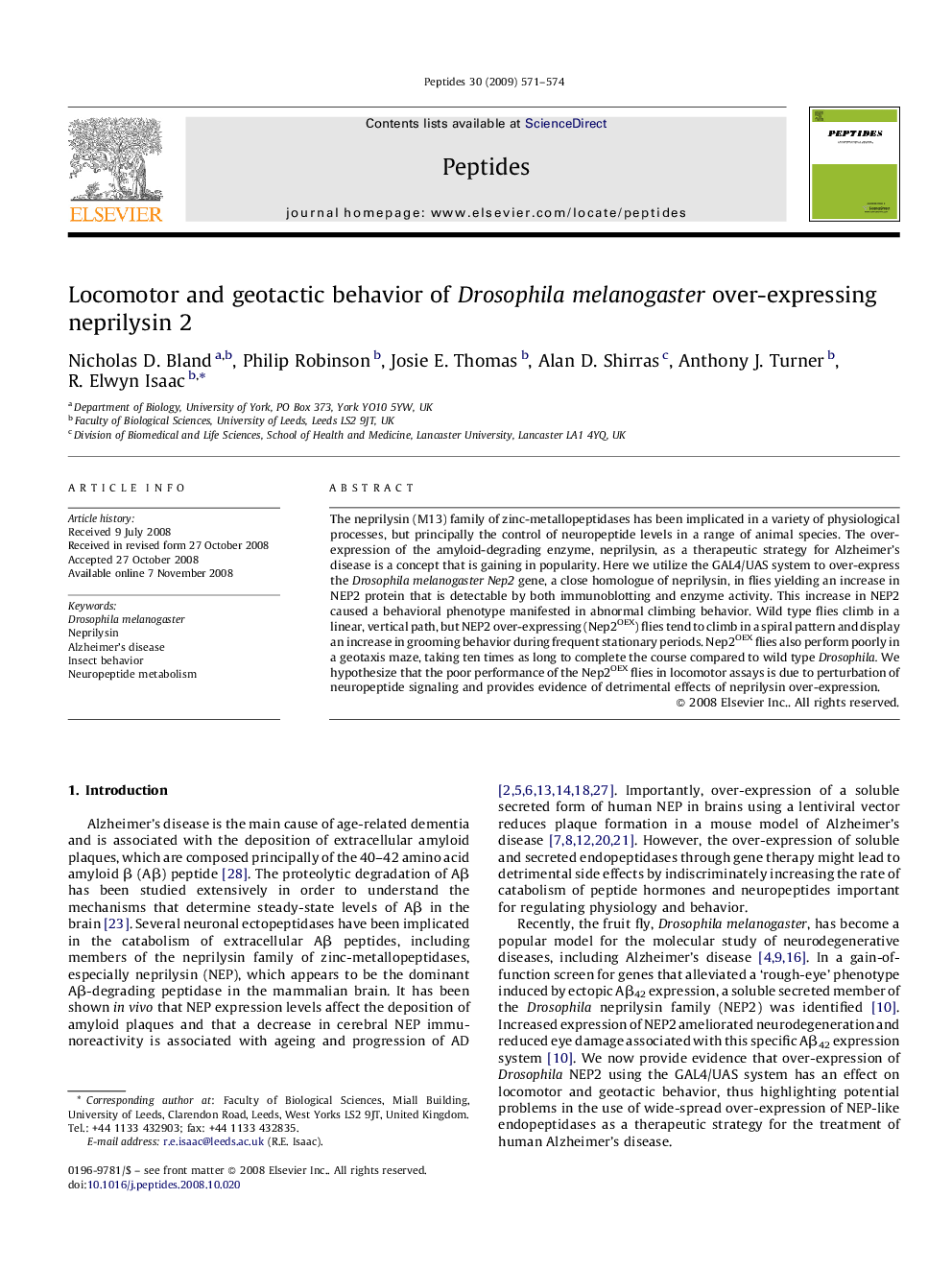| Article ID | Journal | Published Year | Pages | File Type |
|---|---|---|---|---|
| 2007192 | Peptides | 2009 | 4 Pages |
The neprilysin (M13) family of zinc-metallopeptidases has been implicated in a variety of physiological processes, but principally the control of neuropeptide levels in a range of animal species. The over-expression of the amyloid-degrading enzyme, neprilysin, as a therapeutic strategy for Alzheimer's disease is a concept that is gaining in popularity. Here we utilize the GAL4/UAS system to over-express the Drosophila melanogaster Nep2 gene, a close homologue of neprilysin, in flies yielding an increase in NEP2 protein that is detectable by both immunoblotting and enzyme activity. This increase in NEP2 caused a behavioral phenotype manifested in abnormal climbing behavior. Wild type flies climb in a linear, vertical path, but NEP2 over-expressing (Nep2OEX) flies tend to climb in a spiral pattern and display an increase in grooming behavior during frequent stationary periods. Nep2OEX flies also perform poorly in a geotaxis maze, taking ten times as long to complete the course compared to wild type Drosophila. We hypothesize that the poor performance of the Nep2OEX flies in locomotor assays is due to perturbation of neuropeptide signaling and provides evidence of detrimental effects of neprilysin over-expression.
